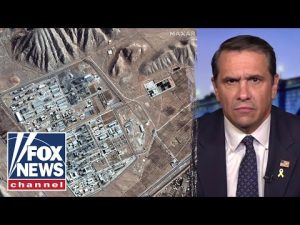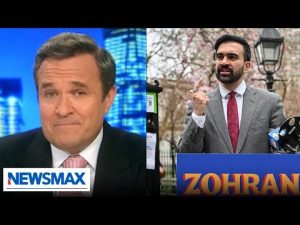In an era where political news is often muddled by biases and sensationalism, a recent commentary in a conservative news channel shines a light on the disturbing trend of leaks within the United States government that aim to undermine presidential credibility. These leaks are not simply allusions to inside gossip; they are deliberate acts with specific goals targeting the foreign policy of President Trump. The implications of these actions reverberate beyond just politics—they signify a concerted effort to alter the course of American diplomacy.
First, it is essential to understand the nature of these leaks. They appear in prominent outlets like The New York Times, often dressed up as revelations about government operations or foreign policy setbacks. However, when scrutinized, it becomes clear that these leaks are strategically timed and framed to undermine specific political figures or policies. They are not spontaneous or accidental; they are meticulously orchestrated, echoing the sentiments of those who wish to see a shift away from more hawkish foreign policy stances. This is evident when one considers the historical context of similar incidents where information was leaked with the express purpose of political gain or damage.
Moreover, let’s consider the public’s reaction to these leaks. While mainstream media may present these stories as just another day at the office, responsible citizens must approach them with a critical mindset. Just because someone is willing to speak to a reporter, even amidst chants of “death to America” in Tehran, does not necessarily denote a friendliness toward American interests. This illustrates a crucial point: the media’s portrayal of foreign sentiment often parallels their political objectives. When Iranians chant against America, pretending they are merely being friendly strains credulity. The American audience deserves to see beyond such sugar-coating.
The underlying motive behind these leaks should not be underestimated. A common narrative suggests that dissenters within the administration—sometimes called the “deep state”—are working tirelessly to shift U.S. foreign policy by leaking information that promotes narratives contrary to the president’s agenda. This behavior should raise alarms, as it blurs the lines between governance and sabotage. If individuals within the government are willing to compromise security and diplomatic relations for political ends, it is a perilous precedent for democracy.
Finally, addressing these leaks is not just about defending one administration or another. It is about protecting the integrity of the presidency itself and reinforcing a respect for the office regardless of who occupies it. The average American should demand a level of accountability that serves both the government and the electorate. If leaks are the byproduct of agendas that favor political warfare over national interests, then all citizens should recognize this disservice.
In conclusion, as the media continues to report, the narrative spins from both sides of the political spectrum. However, it is imperative not to fall into the trap of believing everything is merely benign. Critical examination reveals that there are agendas at play—ones that seek to manipulate opinions and undermine credibility. Encouraging transparency, understanding the implications of these leaks, and fostering a robust defense of presidential authority are essential for ensuring American values are upheld amidst a sea of conflicting narratives.







